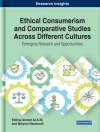`This book is easy to read and the accompanying computer CD of worksheets to print out is particularly useful′ –
Bereavement Care
All children experience loss, often a death or a family separation; sometimes a friend moves away or a pet dies. Loss is the inevitable consequence of the positive experience of attachment.
In this beautiful book Tina and Lorna offer teachers a resource that will support their understanding of the process and facilitate a range of activities which:
– acknowledge the experience of loss
– allow the expression of pain, fear, sadness
– present the process as a shared experience
– encourage communication
– facililate recovery.
This range of sensitive, positive and emotionally literate activities can be used in whole class, small group or individual settings and sit well in several primary and secondary PSCHE curriculum areas.
Table of Content
Chapter One
Nature of Death, Loss and Bereavement
Chapter Two
What Can Schools Do?
Chapter Three
Working with the Individual Child
Chapter Four
Portraits, Poems and Pictures
Chapter Five
Books for Children
About the author
Tina Rae specializes in social, emotional and behavioral disorders and difficulties. She has undertaken research in the areas of engagement and disaffection with learning in young people, debriefing following critical incidents, attachment disorders, emotional well being and the psychological assessment of young offenders. Rae is experienced in assessing children and young people with respect to learning difficulties, emotional well being and relationships with carers. She is a registered member of the Health Professions Council and a full member of the British Psychological Society. She is currently a Professional and Academic tutor on the Doctorate in Child and Educational Psychology at UEL. Tina is a member of the SEBDA executive and council and a member of ENSEC. With 68 publications to date, she has written extensively on topics such as well-being, attachment, resilience, emotional literacy, behavioural problems, anger and stress management, critical incidents, cognitive behavioural therapy, motivational interviewing, solution focused brief therapy, loss and bereavement in young people, youth offending and social skills development.












